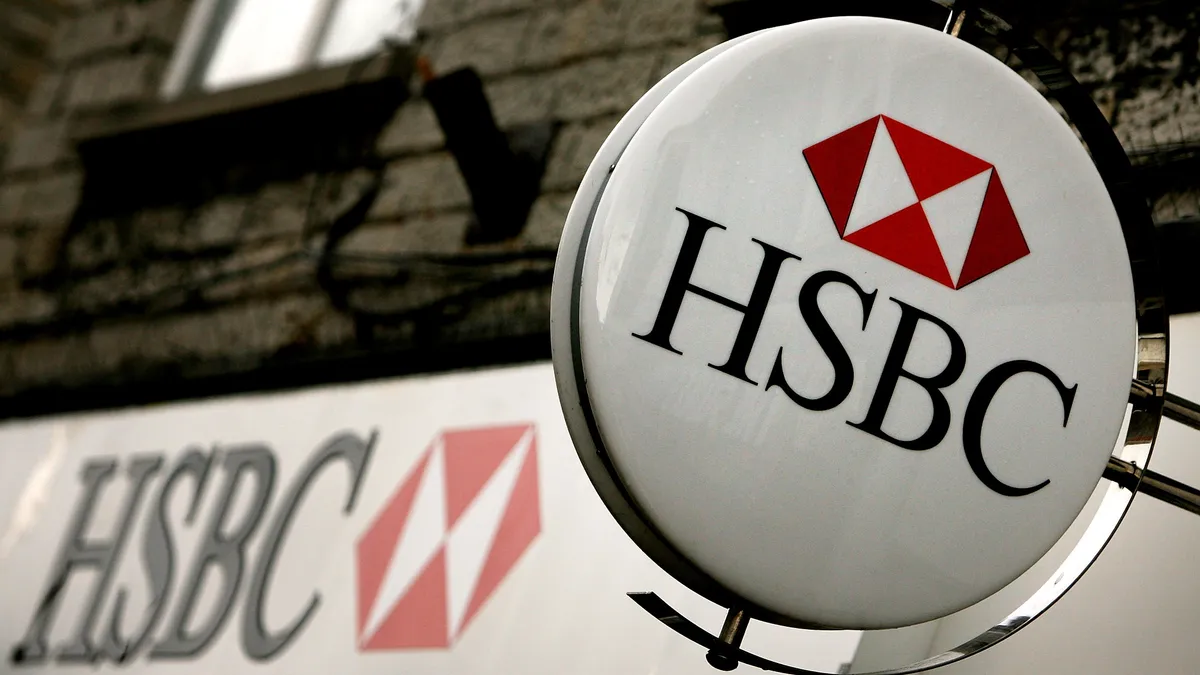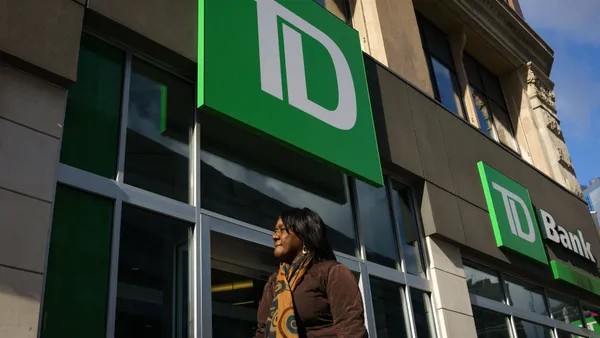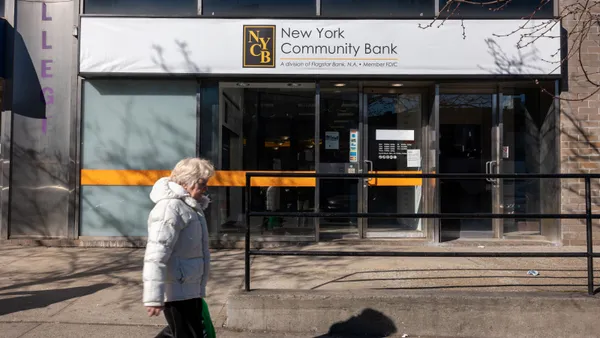Dive Brief:
- Royal Bank of Canada (RBC) has agreed to buy HSBC’s Canada unit in an all-cash deal worth C$13.5 billion ($10 billion), the banks announced Tuesday.
- The transaction, set to close in late 2023, would bolster RBC — already Canada’s largest bank — with an added $99.6 billion in assets and 130 branches, including 45 in British Columbia.
- For HSBC, the deal may ease pressure from its largest shareholder, Ping An, which had urged the bank to split its Western and Asian operations. Asian markets account for roughly two-thirds of HSBC’s profits, and a heavier focus on that continent is key to the bank’s ongoing three-year effort to cut 35,000 jobs and $100 billion in assets.
Dive Insight:
Tuesday’s deal for the HSBC unit means three of Canada’s four largest lenders are engaged in eight-figure acquisitions to grow their business. TD, the country’s second-largest bank, agreed in February to buy First Horizon for $13.4 billion — a deal that would expand the bank’s footprint in the Southeast and make it the U.S.’s sixth-largest bank. Bank of Montreal, Canada’s fourth-largest lender, agreed last December to buy San Francisco-based Bank of the West from France’s BNP Paribas for $16.3 billion.
“It really does represent a once-in-a-generation opportunity,” RBC CEO Dave McKay told reporters on a Tuesday call to announce the deal.
McKay characterized the acquisition as “not an asset strategy” but a “client growth story,” according to The Globe and Mail. RBC stands to gain 780,000 retail and commercial customers through the deal, including “connectivity to the next generation of immigrants,” McKay said.
“This ... positions us as the bank of choice for commercial clients with international needs, newcomers to Canada and affluent clients who need global banking and wealth-management capabilities,” McKay said in the bank’s press release.
Commercial banking accounted for nearly half of HSBC Canada’s net operating income in its most recent quarter, according to Bloomberg.
The sale of HSBC’s Canada unit is hardly a surprise. The British bank was rumored last month to be exploring a sale of its Canada business for $7 billion to $10 billion.
RBC’s cash stockpile likely made it the safest bet for HSBC, which ranks as the seventh-largest bank in Canada — a market dominated by six big players.
RBC grew throughout the COVID-19 pandemic, but Canada’s lawmakers and top banking regulator prevented banks from hiking dividends. So RBC’s disposable cash swelled. And the bank waited for its opportunity with TD and BMO seized others.
“Patience is really important,” McKay told The Globe and Mail. “We didn’t know [the HSBC Canada sale] was going to happen, or the timing,” he added, calling the transaction “more sure-footed” than its rivals’ deals.
The acquisition, however, must gain the approval of three Canadian regulators, Reuters reported Tuesday. Canada’s Finance Department said its top minister, Chrystia Freeland, must take into account “all matters she considers relevant,” which could include the rights and interests of customers, and impact on competition.
RBC said it plans to save about C$740 million annually by 2024 as a result of the deal — a total that accounts for 55% of HSBC Canada’s costs. That could mean job cuts and branch closures, but RBC executives did not detail the depth of any such moves Tuesday. RBC said it expects to incur C$1 billion in acquisition and integration costs from the deal, but ultimately intends to add 6% to its earnings per share by 2024.
The sale represents another major retreat for HSBC — especially in North America, where the bank in May 2021 agreed to sell 80 of its 148 U.S. branches to Providence, Rhode Island-based Citizens Bank, and another 10 to Los Angeles-based Cathay Bank.
“The deal makes strategic sense for both parties,” HSBC CEO Noel Quinn said in a statement, adding that the bank’s strategy remained “unchanged” and that the lender would reinvest the money from the transaction into “growing our core businesses.”
The bank said it also is “proactively” considering paying a one-time dividend to shareholders or offering a fresh stock buyback, as the transaction lifts HSBC’s core capital ratio by 130 basis points, above the bank’s target, according to Bloomberg.
Joseph Dickerson, an analyst with Jefferies, told the wire service such a move “may serve to appease those investors still frustrated that dividends were curtailed in early 2020.”
HSBC hasn’t left North America altogether. The bank said last year it would retain and repurpose 20 to 25 U.S. locations as international wealth centers for its mostly Asia-based private-banking and wealth-management customers.
But the bank has been shoring up its European footprints, too. HSBC agreed in June 2021 to sell its French retail banking operations to U.S. private-equity company Cerberus for €1. That deal was expected to hand HSBC a $3 billion loss.














